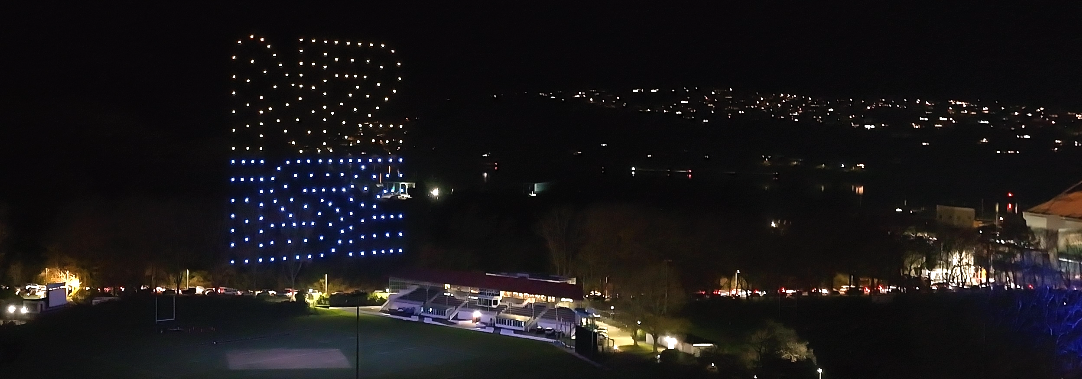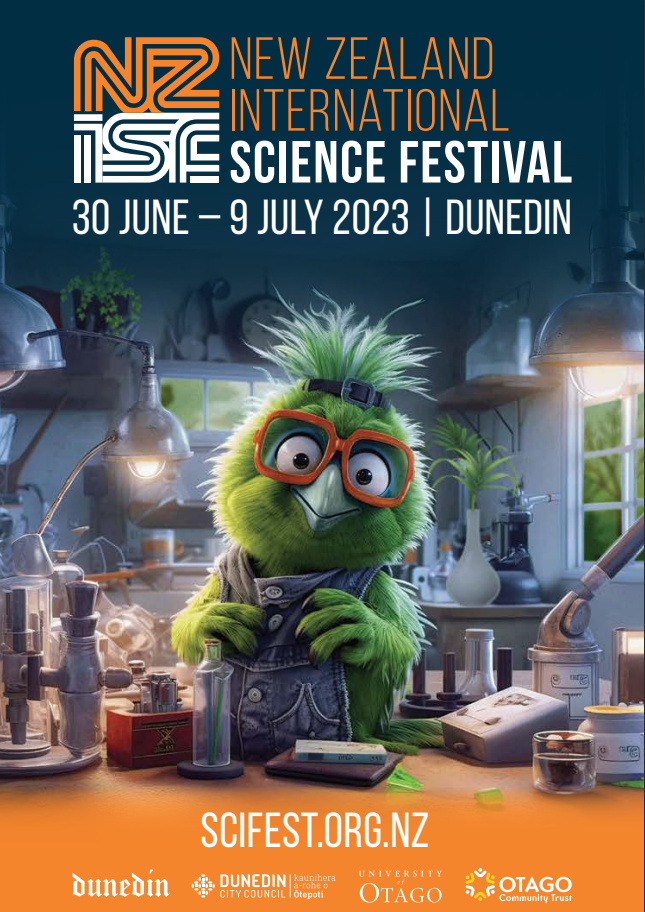
The National Science Challenge talks - how can we improve the health and wellbeing of kiwis across all age, cultural and economic spectrums?
Accessibility information: The venue has asked us to ask ticket holders to check if anyone has accessibility requirements that require a ramp for access to the venue. They have a ramp and are more than happy to deploy it when required, but just need to ensure they have the right staff rostered on to do so.
So please e-mail [email protected] if you require a ramp, and they’ll ensure everything is ready for you beforehand. They would also like us to pass on that they’re working on a more permanent solution for the future. Thank you for your understanding.
How can we improve the health and wellbeing of kiwis across all age, cultural and economic spectrums? Drawing on research from the National Science Challenges, these talks will focus on supporting and improving our collective mental and physical wellbeing.
Panel:

Prof Geoff Chase - Science for Technological Innovation National Science Challenge
Prof Parry Guilford - Healthier Lives National Science Challenge
Prof Louise Parr-Brownlie - Ageing Well National Science Challenge
Prof Barry Taylor - A Better Start National Science Challenge
Moderator: Prof Peter Crampton
Established in 2014, the eleven government-funded National Science Challenges are cross-disciplinary, mission-led programmes designed to tackle New Zealand’s biggest science-based challenges. As they enter their final year of funding, representatives of each Science Challenge will gather in Dunedin across four nights to discuss some of the impactful research that has come out of these initiatives and how it is being applied across Aotearoa for the benefit of us all.
The adjoining Dish Cafe will be open before and after this event for coffee and drinks. Nibbles will be provided after the talk to encourage the conversation to continue.
Panel Talk Multi-Buy Discount! Purchase tickets to three or more of our panel talks and receive a $5 discount per ticket. Discount automatically applied at checkout – tickets must be purchased at the same time.
Discount applies to the following talks:
The Future of Energy
AI and the Workforce
Healthier Kiwis: A National Science Challenges Panel
Liveable Cities: A National Science Challenges Panel
Enabling Kaitiakitanga: A National Science Challenges Panel
Feeding Aotearoa: A National Science Challenges Panel
Antimicrobial Resistance
Panelist Bios:
Distinguished Professor Geoff Chase - University of Canterbury
Distinguished Professor in Mechanical Engineering and Director of Mechatronics at Canterbury University, Geoff is a Fellow of the Royal Society of New Zealand, the American Society of Mechanical Engineers, and Engineers New Zealand. His research interests include novel model-based control systems and their implementation in the broad areas of structural engineering, structural health monitoring, and biomedical/clinical engineering.
Geoff’s focus within the Science for Technological Innovation National Science Challenge is the research and application of model-based therapeutics that improve care, save lives, and reduce cost. As part of this role, Geoff also leads the Spearhead project: Home and community based care – Type 2 diabetes.
Professor Parry Guilford - University of Otago
Professor Parry Guilford is Deputy Director of the Healthier Lives National Science Challenge and a Principal Investigator in the Cancer Genetics Laboratory, University of Otago, the Director of the Centre for Translational Cancer Research, and the Chief Scientific Officer and co-founder of the cancer diagnostics company Pacific Edge Ltd. He completed his MSc at Otago in 1983, and his PhD at Cambridge University in 1989. He is a member of the HRC Board, and a recipient of the Charles Hercus Medal for biomedical research, the HRC Beaven Medal for translational health research, the University of Otago’s 2017 Distinguished Research Medal, and is a Fellow of the Royal Society Te Apārangi.
Professor Guilford’s research interests include the genetics of inherited and sporadic cancers, and the development of new cancer diagnostics and therapeutics.
Professor Louise Parr-Brownlie - University of Otago
Professor Louise Parr-Brownlie (Ngāti Maniapoto me Te Arawa) is the Director of Ageing Well National Science Challenge - Kia eke kairangi ki te taikaumātuatanga and a Professor in the Department of Anatomy at the University of Otago. As Director, Louise draws on western science and mātauranga Māori to ensure the best methods are used to answer mission-led research questions that deliver equitable, positive ageing for kaumātua.
Professor Parr-Brownlie’s internationally recognised expertise is in understanding how brain cell activity controls movement and characterising changes associated with Parkinson’s disease. She has extended her research programme to explore Māori community perspectives of neurosurgery and to investigate if neuroinflammation can be harnessed to slow or prevent neurological disorders.
Professor Parr-Brownlie is a member of the Health Research Council’s Biomedical Research Committee and the New Zealand Institute of Directors; serves as the Deputy Head of Department – Maori for Anatomy at the University of Otago; and was the Chair of the Rauika Māngai (a collective of leaders from the eleven National Science Challenges and Ngā Pae o te Māramatanga, Aotearoa New Zealand’s Centre of Māori Research Excellence). She completed her doctoral training at the University of Otago, and conducted postdoctoral research (2003-2007) at the National Institutes of Health in the United States.
Professor Barry Taylor - University of Otago
Professor Barry Taylor is Deputy Director of A Better Start - E Tipu e Rea - National Science Challenge and Professor of Paediatric Health in the Department of Women's and Children's Health at Otago University and formerly the Dean of the Dunedin School of Medicine. Barry is a distinguished researcher who has dedicated his career to improving the health and wellbeing of children in New Zealand and around the world.
His research interests have spanned paediatric endocrinology, sudden infant death syndrome and the development of national mortality review for child and youth deaths. He has developed interests in the investigation of sleep disorders of children and the use of “big data” to answer questions about child health and wellbeing.
With the rapidly increasing child obesity rates a national problem, a significant part of Barry's research now focuses on prevention and management of this issue. Of special interest is the interaction (at many levels) between sleep and obesity and the prevention and management of unhealthy child weight gain.
Moderator: Peter Crampton - University of Otago
Peter is Professor of Public Health in the Kōhatu Centre for Hauora Māori at the University of Otago. He started his professional life as a general practitioner and later specialised in public health medicine. His academic career has spanned a variety of roles including serving as University of Otago Pro-Vice-Chancellor of Health Sciences and Dean of the Otago Medical School. His research is focused on social indicators and social epidemiology, health care policy, health care organisation and funding, and Māori health. He teaches undergraduate and postgraduate courses related to public health, health systems, health services management and Māori health. Peter has served on numerous government advisory panels in a variety of policy areas related to public health, health services, and health workforce, including the Government’s 2018-2020 Review of the Health and Disability System. He is a board member of Te Tāhū Hauora (Health Quality and Safety Commission) and is a member of the statutory Public Health Advisory Committee.

